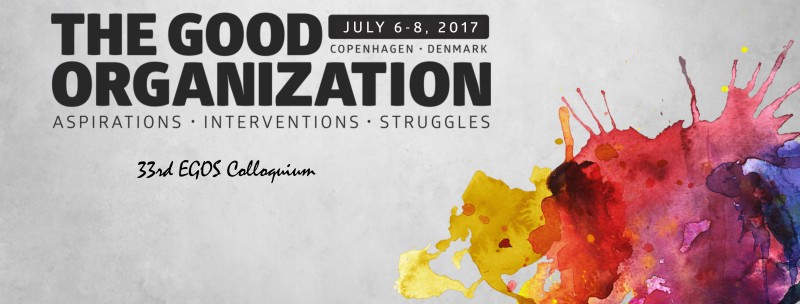The Good Organization is often depicted as the efficient organization – a particular means to achieve some pre-given end or purpose. But efficiency alone can hardly guarantee that an organization will be a force for the greater good, public as well as private. To that end, other ideals and aspirations have been frequently advocated: diversity, care, excellence, sustainability, health, play, transparency and responsibility, to name but some of the most obvious. Organizations structured according to these ideals, it is argued, can and should result in better products and services, better people, better workplaces and better societies.
Shaped by Scandinavian welfare traditions, the Danish organizational landscape is often deemed radically benevolent to high degrees of inclusion and participation as well as leading developments in the areas of work-life balance, sustainability, equality, transparency and other contemporary markers of The Good Organization. At the same time, a distinctive Danish tradition of compromise and glossing over antagonisms might mask the conflicts inherent to the pursuit of The Good Organization.
For its part, the Copenhagen Business School (CBS) has cultivated an interdisciplinary approach to the role of business in society, implicitly encouraging but also interrogating the idea of The Good Organization. At the same time, though, CBS’s self-description as ‘the Business University’ is itself an ongoing compromise in the continuing antagonisms besetting many business schools in one way or another, between their loyalty to business interests and engagement with societal issues. At CBS we appreciate the opportunity to celebrate our 100 year anniversary by hosting the EGOS Colloquium in 2017 and explicitly reflecting on the aspirations, interventions, and struggles of The Good Organization.


